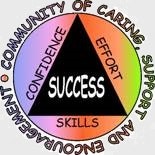Student Success Skills provides a lesson-based approach to SEL. It includes programming for grades K-12 and demonstrates evidence of effectiveness in grades 4-5 and 7-10. Translated materials for Student Success Skills are available in Spanish and French.
-
-
- SEL lessons
- Relationship building
-
- Family Intervention Component
-
-
- Onsite in-person training
- Virtual training
- Offsite training
- Train the trainer model
-
- Administrator support
- Coaching
- Technical assistance
- Professional Learning Communities (PLCs)
- Online resource library
- Self-report tools for monitoring implementation
- Observational tools
- Tools for measuring student success
Evidence of effectiveness
Results from a quasi-experimental conducted in the 2007-2008 academic year (published in 2011) support the effectiveness of Student Success Skills for elementary students. The evaluation included 156 grade 4 and 5 students enrolled in schools in the US Southeast (Latinx = 100%; 100% = enrolled in English for Speakers of Other Languages (ESOL) classes). This evaluation tested the Spanish translation of Student Success Skills. The evaluation found that the students who participated in the program achieved higher standardized test scores in mathematics and reading compared to students in the comparison group (outcomes reported 1 year after baseline while controlling for outcome pretest).
Results from a quasi-experimental evaluation conducted in the 2008-2009 academic year (dissertation published in 2011) supported the effectiveness of the Spanish translation of Student Success Skills with high school students. This evaluation was conducted with a sample of 352 grade 9 and 10 students in the US Southeast (100% Latinx). This evaluation found that students who participated in the program had higher reading and mathematics standardized test scores compared to students in the control group (outcomes reported 9 months after baseline while controlling for outcome pretest).
Results from a randomized control trial (RCT) conducted in the 2011-2012 academic year (published in 2019) support the effectiveness of Student Success Skills for elementary students. This evaluation used a large, multi-site sample, including 4,320 grade 5 students enrolled in schools in the US Southeast (white = 39%, Black = 35%, Latinx = 20%; 55% eligible for FRLPL). The evaluation found that the students who participated in the program experienced significantly greater growth in teacher-reported cooperation, assertation, and positive behavioral engagement compared to students in the comparison group (outcomes reported 30 weeks after baseline, while controlled for outcome pretest and a host of relevant demographic characteristics. Additionally, students who participated in the program experienced significantly less steep increases in teacher-reported disruption than students in the comparison group.
Results from a quasi-experimental evaluation conducted in the 2013-2014 academic year (published in 2015) supported the effectiveness of the Student Success Skills with high school students. This evaluation was conducted with a sample of 197 grade 9 students in the US Southeast who scored below grade-level in reading proficiency (African American =51%; Latinx = 34%, white = 12%). This evaluation found that students who participated in the program had earned more course credits (an indicator of on-track graduation) by the end of their 9th grade year compared to students in the control group (outcomes reported 9 months after baseline).
Results from a randomized control trial (RCT) evaluation published in 2015 and 2018 (Lemberger et al.) supported the effectiveness of the Student Success Skills with middle school students. These evaluations were conducted with a sample of 193 students in grades 7 and 8 in the US Southwest (Latinx=66%, white = 20%; 81% students in sample district eligible for FRPL). This evaluation found that students who participated in the program achieved higher standardized test scores in reading and mathematics, as well as improvements in self-reported supportive relationships with classmates and executive functioning compared to students in the control group (outcomes achieved three months after baseline while controlling for outcome pretest).
-
Evidence shown in grades 4, 5, 7, 8, 9, 10School characteristics -
- Rural
- Suburban
-
- Southeast
- Southwest
Student characteristics - Black / African American
- Hispanic / Latinx
- White
- Low income
Percentage Low Income - Eligible for FRPL: 55%
Study design type - RCT
Greater than 350 students included in study design type - Yes
Multiple school districts included at study design type - Yes
-
- Improved academic performance
- Reduced emotional distress
- Improved identity development and agency
- Reduced problem behaviors
- Improved school climate
- Improved school connectedness
- Improved social behaviors
- Improved teaching practices
- Improved other SEL skills and attitudes
Related Programs
Back to top- Program approach: Free Standing Lessons
- Significant evaluation outcomes: Improved academic performance, Reduced problem behaviors, Improved school connectedness, Improved social behaviors, Improved other SEL skills and attitudes
- Student characteristics: Black / African American, Hispanic / Latinx, White, Low income
- School characteristics: Rural, Suburban, Southeast, Southwest
Sign up for our newslettersAccess the latest, most trusted information on SEL -
